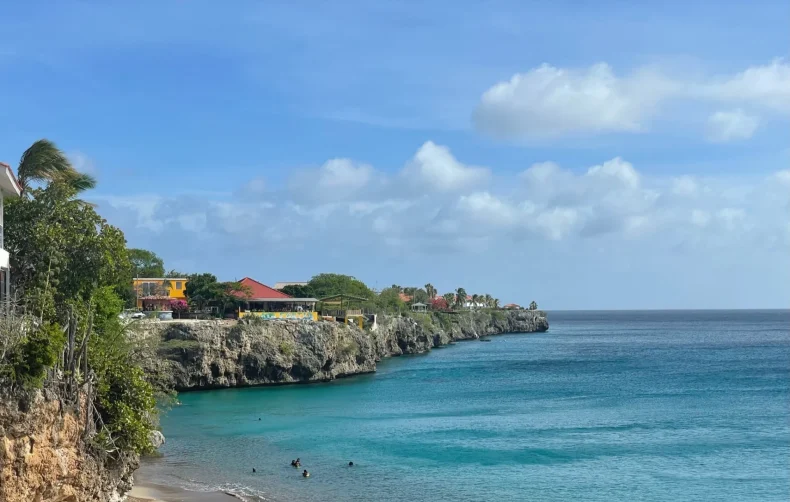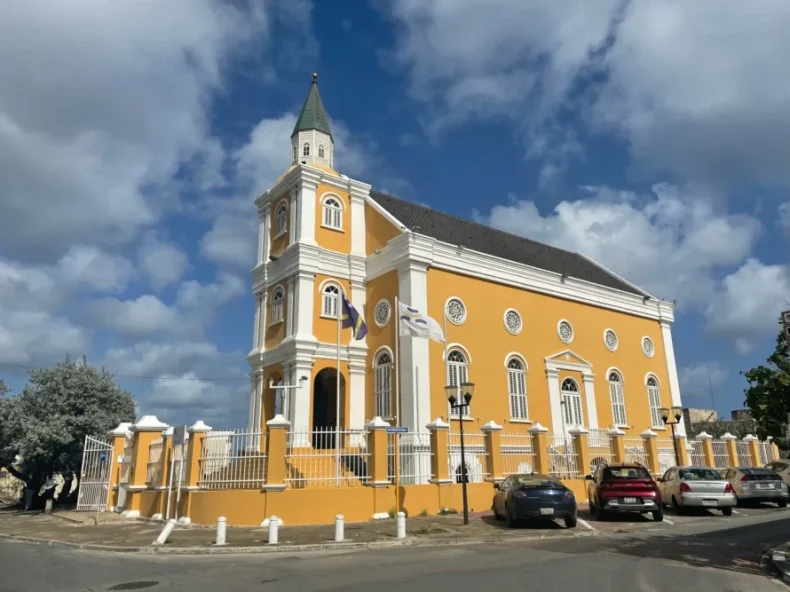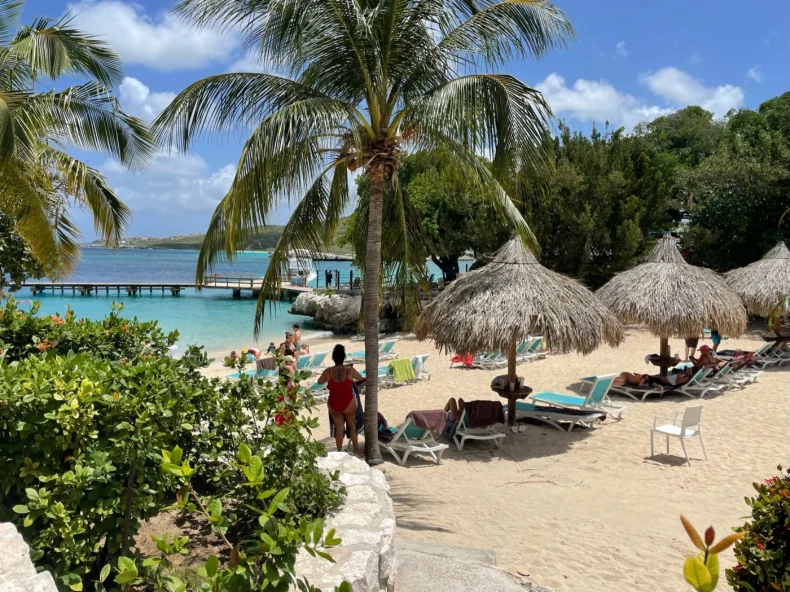Curaçao is becoming a more popular tourist destination for English-speaking tourists from The United States, Canada, and certain parts of Europe. Most people love to travel the island to escape the grey weather from their home country, but just how widely the language spoken in Curaçao?
English is spoken by the vast majority of the Curaçao population. Although for many it is not their mother tongue, one can communicate fluently or understandably in this language. This is because English is one of the island’s three official languages.

Because the island mainly lives from tourism, people want to be able to communicate with its visitors. English is a language spoken by a large majority of tourists. Whether one comes from Germany, Sweden or Canada, English will always be a language where visitors and residents can find a common conversation.
Speaking English in Curaçao
Curaçao is dominated by tourism, therefore you will find that it is widely spoken in hotels, shops, and restaurants since these branches receive so many North American and European tourists each year.
This is also the official language in the economic industry of Curaçao. All communication, both verbal and written, is in English. Official documents and speeches are all conducted in this language.
The inhabitants of Curaçao also have to deal with different nationalities amongst each other, which is why English communication in economic traffic is understandable for almost everyone.
How common is English in Curaçao?
Speaking English is very common in Curaçao because the island has a lot of nationalities and backgrounds.
Papiamentu and Dutch are spoken by a large number of Yu di Korsou and European Dutch residents. In addition, Curaçao has a large Latin, North American, European and Asian community.
That’s why English is often a common language to bond with. It is a frequently used language to communicate with each other in daily life.

Do people speak fluent English?
Most Yu di Korsou and European Dutch are fluent in English. Residents with a different background also speak it fluently or at least understandably.
Because Spanish is also one of Curaçao’s official languages, there is a large number of Latin American people who do not speak English.
The environment you are in has a lot of influence on your language skills. People who work for the government or deal with international affairs and commerce speak English as if it were second nature. People who work in tourism naturally speak it and several additional languages.
Not only your working environment but also your social environment influences your languages. Will you stay in a closed community or explore various international communities on Curaçao?
It is a fact that if you only speak one language, it can be difficult to move in other circles. Practicing and performing has already helped many people to get better. Especially in the form of speaking languages. I am not only talking about English, but also about Papiamentu, Spanish and Dutch on Curaçao.
Precisely because Curaçao is such an international community, we are only too happy to help each other with language learning. You will find that most of the locals are very friendly, patient and helpful when you are trying to speak a language.
The language in Curaçao tourism
Everyone who works in tourism speaks English. For many companies in this sector it is even a requirement when applying for a job. As a visitor you will notice that people will speak English in restaurants, shops and during tourist activities and outings.
Tours and guidance will usually take place in this language, and will also offer an option for Dutch and Spanish.
Hotels and resorts are increasingly taking on niche speakers. In large resorts you will often find someone at the front desk who speaks a bit of French, Portuguese or even German.
It’s a small gesture to help tourists in their own language, especially if they don’t speak English very well.

Learning some basic Papiamentu phrases
While you can speak English anywhere, a little basic Papiamentu will make things easier and also endear you to the local people who, like the locals in any other country, appreciate tourists making a little effort to converse in their own language.
That’s why we’ve put together a small list of commonly used words in Papiamentu. You can always use these words when greeting, thanking and in small conversations.
- Bon dia – Good morning
- Bon Tardi – Good afternoon
- Bon Nochi – Good evening
- Bon Siman – Have a good week
- Bon Weekend – Have a nice weekend
- Ayo – Good bye
- Kon ta bai – How are you?
- Hopi bon – Very good
- Masha Danki – Thank you very much
- Di nada – You’re welcome
- Dushi – Sweet/darling/honey
Also read: Learn Papiamentu with our free guide.
In this blog we will give you a more in-depth introduction to the Curaçao native language, teaching you more common phrases and daily life island situations. The phrasebook can also be downloaded as PDF, so you will always have an offline copy with you on the road.
Conclusion
English is one of the four official languages of Curaçao, and the vast majority of the population speaks it fluently, if not intelligibly. In industries where international communication is involved, such as tourism and economics, English is the working language.
The influence of different cultures and nationalities has resulted in a wide variety of languages being spoken throughout the island. Besides English, the other official languages are Papiamentu, Dutch and Spanish and most Curaçao natives speak all of them.
Their talent for languages is a skill the residents of Curaçao can be proud of. They contribute to the rich community and vibrant culture the island is known for.
As an English-speaking tourist you are well off on this island. Everywhere you go, the language is spoken. However, it is recommended to learn some common phrases in Papiamentu. This is the perfect way to break the ice and gain the appreciation of the people of Curaçao.

